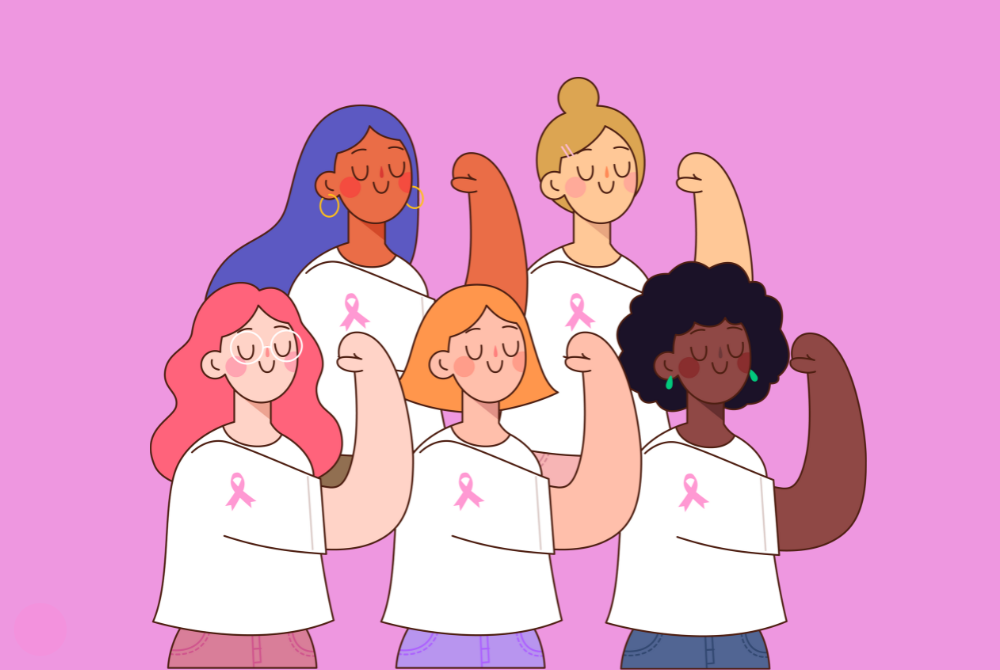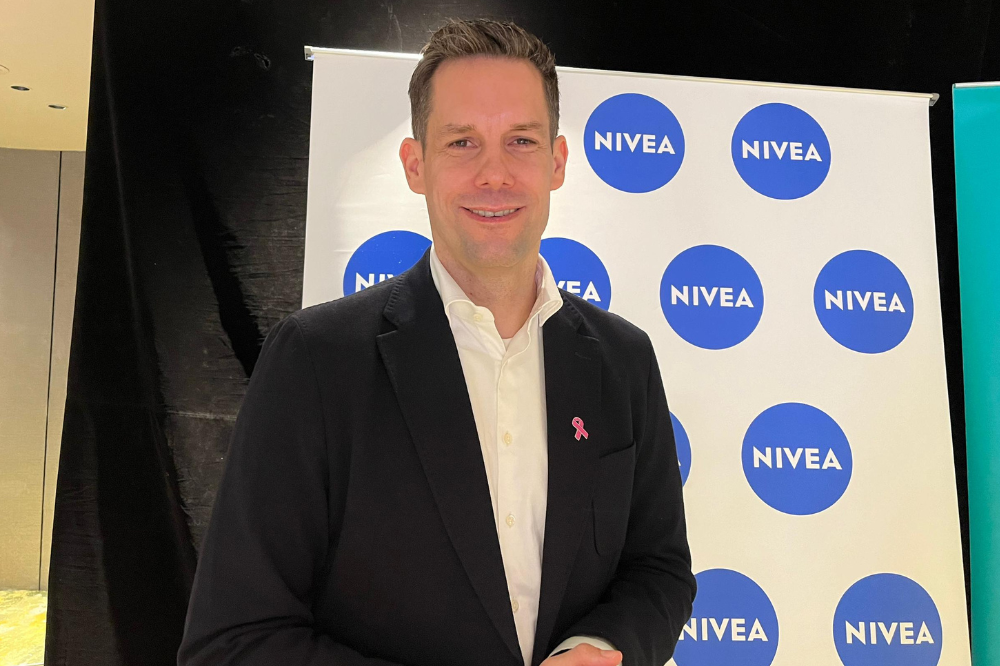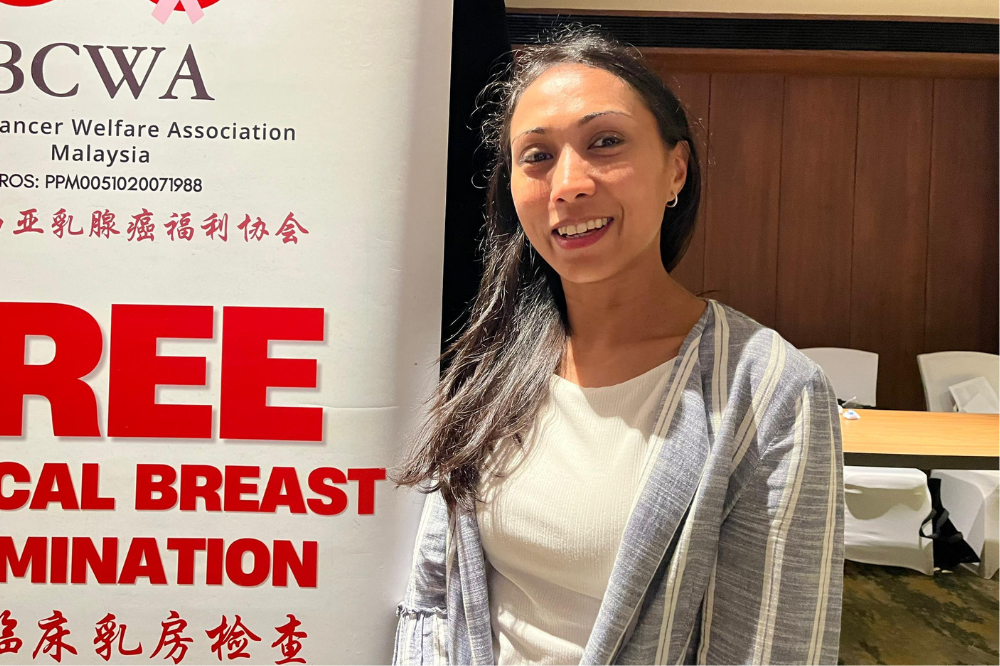Breast cancer: Early detection crucial amid rising late-stage diagnoses
Research has shown a strong correlation between late detection and lower survival rates, highlighting the urgent need for proactive health measures.

As the fourth deadliest disease in Malaysia, cancer’s grip will not loosen unless individuals prioritise regular medical check-ups that are crucial for early detection.
Research has shown a strong correlation between late detection and lower survival rates, highlighting the urgent need for proactive health measures.
Dr Nur Fadhlina Abdul Satar, an oncologist at Pantai Hospital Kuala Lumpur, said that the primary barrier to improving survival rates among cancer patients is the late detection of the disease, often by the time it has metastasised to other parts of the body.
However, she said that cancer, regardless of being detected early or late, is a treatable condition.
“Many patients who are already at stage four feel hopeless about their situation and they refuse to take up treatment because of their hopelessness,” she said during an event to raise awareness about breast cancer.
“We need more brave ladies coming out to speak about their journeys if they are already suffering or surviving a cancer-free life or simply those who want to get detection,” she added.
She acknowledged that cancer has always been associated with feelings of stigma not just by others but themselves, denial, and hopelessness from the sufferer.
“We must educate our ladies that even though the cancer has already been in the late stage, there are still a lot of treatments available for patients,” she urged.
Meanwhile, personal health brand Beiersdorf country manager Christopher Vierhaus also advocates for early detection in raising breast cancer awareness.
“I think the key to improving survival rate is to do early detection. It can only be improved if we take out the stigma.
“We understand many women fear they might have something that needs to be checked out where it can turn out okay or it can turn out not okay, they just don’t dare and they’re a bit fearful of the consequences,” he said during an event to raise awareness on breast cancer.
He added that many worry about what would happen to their family consequently or not being able to afford the cost of treatment.

“Let’s bring down the fear and encourage everyone to get checked by a competent doctor and the survival rates, if detected very early, can turn out better,” Vierhaus said.
Dr Fadhlina also highlighted some of the most prevalent stigmas associated with being a cancer patient. Many individuals often assume that only doctors and nurses are qualified to perform breast cancer screenings.
“You can always check on your own first, where many breast checking for cancer practices have been circulating online,” she said while asserting that the most common step would be to know for any lumps, dimpling, or shadowing around the breast area, including armpits and the neck.
“Early diagnosis saves lives and because not many know this, many Malaysian women are diagnosed with breast cancer at stages three to four with many left in denial. Even in the medical fraternity, we have our ladies not being able to come to terms with it and kept questioning, “Why me?”, she said.
She also debunked the myth that most cancer diseases are hereditary.
“About 95 per cent of cancer patients don’t have family history,” she said.

SURVIVAL RATE
Upon addressing the survival rate of breast cancer in Malaysia, Dr Fadhlina said that the nation was at 60-70 per cent, falling behind neighbouring countries including Germany by 15-25 per cent and Singapore by 10-20 per cent.
“If you are diagnosed at stage 4, your survival rate would be 23.3 per cent,” she said.
She further asserted that many patients questioned the necessity of chemotherapy and all related treatments, such as radiotherapy.
“This is our medical advice, this treatment increases your chances of surviving, and we will walk with you throughout the journey,” she said while stating that the multidisciplinary team would include doctors, nurses, and many more including dentists.
“Dentists are responsible for looking out for potential osteoporosis around the jaw area if any pain around it occurs,” she said.
She further said that radiotherapy works best for breast cancer patients where the method manipulates the X-ray and uses systemic therapy to get better local control for the lymph node area.
Dr Fadhlina also addressed certain patients’ keenness for a natural medication.
"Chemotherapy can also be natural; the medicine is just being organised, bottled up, and delivered in a safe manner,” she clarified.
The oncologist also noted that many patients prefer to rest throughout their treatment, likening this approach to a sedentary lifestyle.
"That is not true. Listen to your body; if you are able to work out, then you should keep active. Sedentary living, sitting is the new smoking," she debunked.
She also stated that chemotherapy and cancer treatments have the potential to prevent other diseases, such as osteoporosis for those entering old age.
Lastly, she pointed out that cancer is often linked to the belief that consuming sugar can “help cancer grow faster.”
“Your body needs to fight the cancer as well; just make sure that you are in moderation for everything, including diet,” she said.
She said the only way to get more medical advancements is to make the community more open about everything about cancer.
“It allows for new cancer trials. You can even ask an oncologist if they have any open trials for you.
“Prevention is better than cure and it’s not an ‘aha’ moment (having cancer); it is something within me and what I can do to change,” she reminded.











